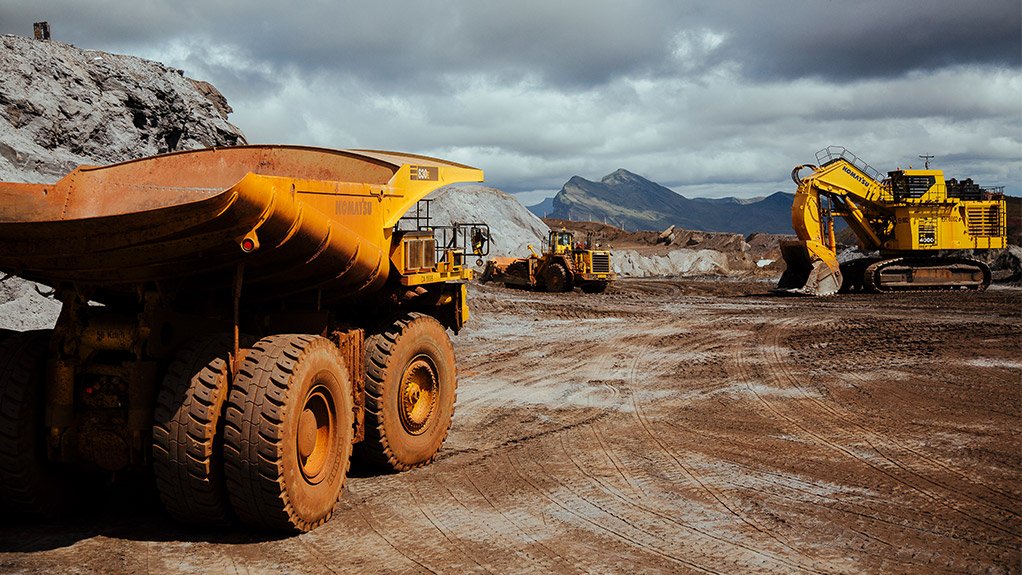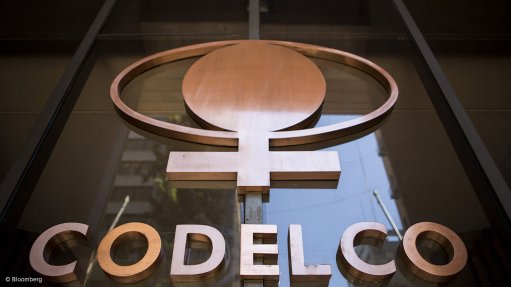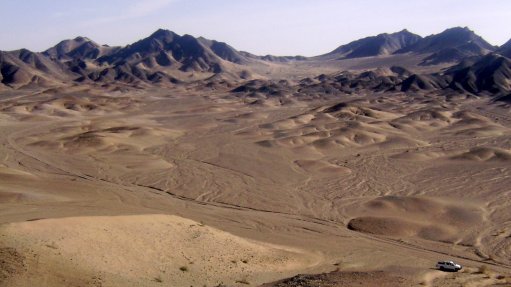Despite high upfront costs, technology investments reap long-term savings – BMI
JOHANNESBURG (miningweekly.com) – With metals and mining companies increasingly investing in technology that will help reduce their carbon footprints, owing to the global drive to lower carbon emissions, meaningful efforts to improve environmental standards in the extractive industries require significant upfront costs, according to Fitch Group-affiliated BMI Research.
In its latest industry trend analysis on corporate strategies for a low-carbon economy, the market analyst noted that long-term cost savings will, however, benefit companies that are ahead of the curve when it comes to prioritising green strategies.
BMI noted that with mineral extraction and smelting – among the most power-intensive and environmentally disruptive industrial processes – coming under increasing social, investor and regulatory pressure to lower emissions, investments in clean technology was key.
With this in mind, company initiatives – such as integrating renewable energy and battery storage into the power mix, or switching to less polluting fossil fuels, such as liquefied natural gas, to support or replace traditionally cheaper but more polluting fuels, such as diesel – are key to reducing carbon footprints.
These initiatives also include the implementation of the internal price of carbon to evaluate investment decisions; the use of the Internet of Things (IoT) and big data analytics to streamline operations, and predict and pre-empt machine failures, thereby saving energy; the development of carbon capture and storage to reduce emissions; and the adjustment of asset portfolios to target technology commodities, including copper, cobalt and lithium.
BMI expects companies that are the most committed to reducing carbon emissions to prioritise the implementation of such initiatives.
Meanwhile, the research firm noted that, according to diversified miner Rio Tinto, energy use (including the use of reductants used to separate pure metals) accounts for more than 90% of total greenhouse gas (GHG) emissions, and is therefore a key area for mining and metals companies to invest when considering their carbon footprint.
Further, BMI expects mining companies to increasingly invest in green power and, in addition to solar and wind power initiatives, companies are expected to prioritise hydropower and replace diesel with natural gas or other low-carbon fuels.
However, the research firm points out that, as some companies also prioritise increased volume and low operating costs, their carbon footprints will increase. For example, while US-based mining company Freeport McMoRan will continue to invest in energy-efficient technology to process minerals, the company expects direct emissions to increase over the coming years as increasing mining rates require additional haul truck fuel consumption.
Acknowledging that curbing production represents the most effective carbon emission reduction method, BMI further points out that metals refining – a main source of emissions – will require an investment in upgrades to smelters, as well as innovative methods to reduce carbon footprints.
A key example is US-based aluminium producer Alcoa which, in 2016, reported a 13.8% year-on-year decline in primary aluminium production, likely driving its 19% reduction in GHG emissions.
Meanwhile, Rio Tinto currently advertises its RenewAl primary aluminium as the world's first certified low-carbon-dioxide aluminium, as a result of the company’s proprietary AP Technology and use of carbon-free hydropower.
Further, mining major Glencore will this year trial technology that generates electricity from carbon monoxide to carbon dioxide combustion heat at the Boshoek ferrochrome smelter in South Africa, and expects to see an initial 8% emissions reduction.
BMI added that the emphasis on this type of integration of new technology and green energy in the mining and metals sector will create opportunities for different industries outside of traditional mine services firms to forge partnerships with major mining companies.
“Mining and metals firms will increasingly turn to IoT, big data, artificial intelligence companies and consultancies to solve long-term challenges in adapting to a low-carbon economy,” said the research firm, adding that, in 2016, gold miner Barrick Gold partnered with Cisco Systems to develop a flagship digital operation at the Cortez mine in Nevada.
CARBON PRICING
BMI suggested that the global trend towards stricter emissions policies, underscored by the 2015 Paris Agreement on climate change, will weigh on mining and metals companies, as the increasingly widespread solution of carbon pricing will raise costs for these companies.
Climate research organisation CDP estimates that a modest carbon price of $7/t would cost the mining industry $16-billion.
While the implementation of carbon pricing will vary, major minerals-producing countries, such as Chile, are adopting the measure. Chile has passed a price on carbon, to take effect this year, and it will be collected for the first time in March 2018.
Canada will also apply a national carbon pricing system in 2018, with South Africa also considering a price on carbon.
Therefore, companies anticipating and accounting for this cost will prove more financially resilient over the long term, according to BMI.
Comments
Press Office
Announcements
What's On
Subscribe to improve your user experience...
Option 1 (equivalent of R125 a month):
Receive a weekly copy of Creamer Media's Engineering News & Mining Weekly magazine
(print copy for those in South Africa and e-magazine for those outside of South Africa)
Receive daily email newsletters
Access to full search results
Access archive of magazine back copies
Access to Projects in Progress
Access to ONE Research Report of your choice in PDF format
Option 2 (equivalent of R375 a month):
All benefits from Option 1
PLUS
Access to Creamer Media's Research Channel Africa for ALL Research Reports, in PDF format, on various industrial and mining sectors
including Electricity; Water; Energy Transition; Hydrogen; Roads, Rail and Ports; Coal; Gold; Platinum; Battery Metals; etc.
Already a subscriber?
Forgotten your password?
Receive weekly copy of Creamer Media's Engineering News & Mining Weekly magazine (print copy for those in South Africa and e-magazine for those outside of South Africa)
➕
Recieve daily email newsletters
➕
Access to full search results
➕
Access archive of magazine back copies
➕
Access to Projects in Progress
➕
Access to ONE Research Report of your choice in PDF format
RESEARCH CHANNEL AFRICA
R4500 (equivalent of R375 a month)
SUBSCRIBEAll benefits from Option 1
➕
Access to Creamer Media's Research Channel Africa for ALL Research Reports on various industrial and mining sectors, in PDF format, including on:
Electricity
➕
Water
➕
Energy Transition
➕
Hydrogen
➕
Roads, Rail and Ports
➕
Coal
➕
Gold
➕
Platinum
➕
Battery Metals
➕
etc.
Receive all benefits from Option 1 or Option 2 delivered to numerous people at your company
➕
Multiple User names and Passwords for simultaneous log-ins
➕
Intranet integration access to all in your organisation





















